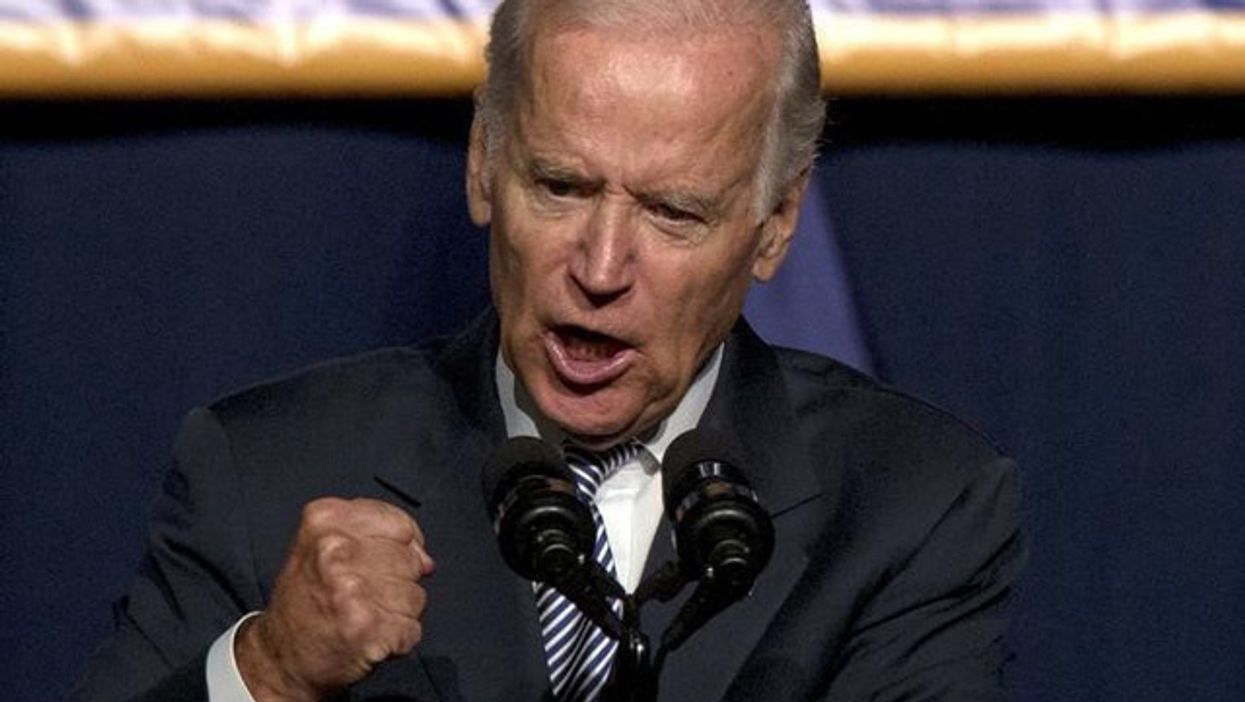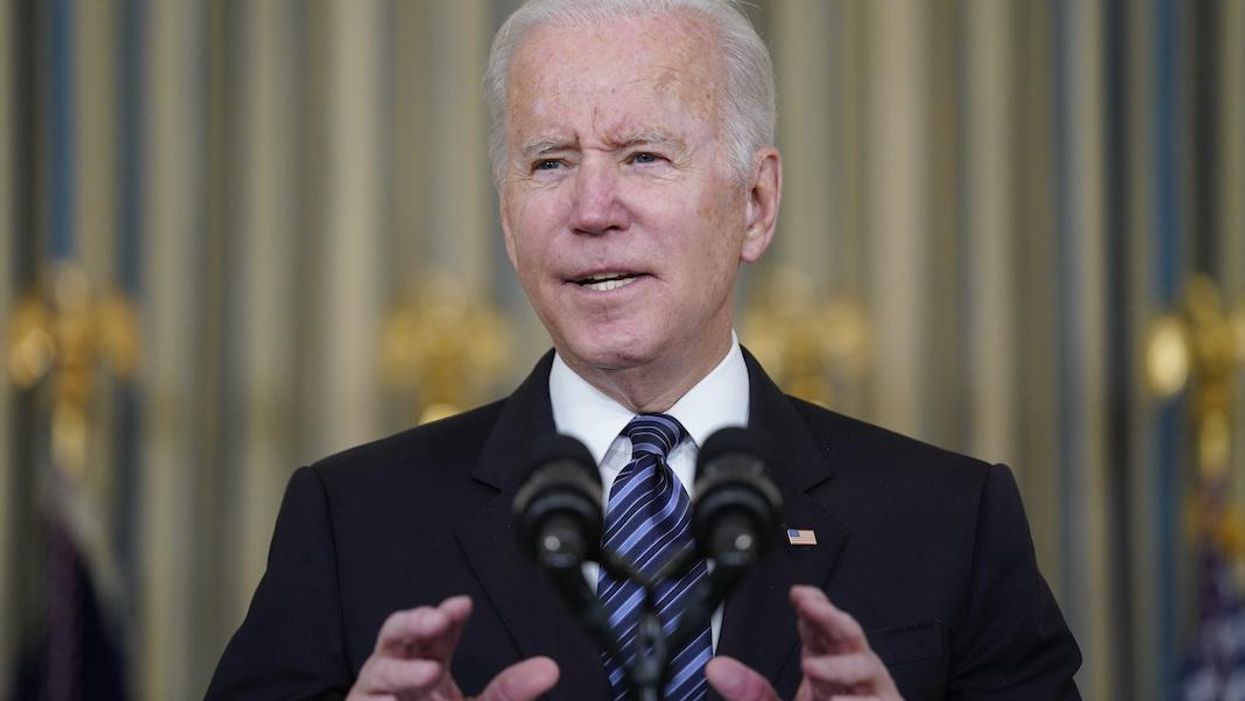Biden Boom Hits New Heights, As Press Buries The Good News
When the Commerce Department on Thursday announced that the economy just grew at the fastest rate in nearly 40 years, posting robust growth numbers not seen since the Reagan era, none of the network newscasts treated the announcement as a big deal. In fact, two of the three newscasts, “ABC World News Tonight” and “CBS Evening News” didn’t even cover the story on Thursday — “NBC Nightly News” gave it one sentence.
The same media that remains in inflation hyperventilation mode, just cannot work up the energy to consistently inform news consumers about the red-hot economy under President Joe Biden. It won’t billboard the fact that it grew so rapidly in the fourth quarter of last year that it pushed the annual gross domestic product rate — the broadest measure of economic activity — to an eye-popping 5.7 percent. (The GDP under Trump never got above 3 percent.) Consumer spending also soared 7.9 percent last year, the quickest clip in since 1946.
So attached to the idea of using economic news to bash Biden, the press doesn’t know what to do when the data demolish the media’s preferred storyline. That was obvious by the fact that the coverage of the blockbuster GDP news seemed to go out of its way not to mention him.
In its GDP news piece, the New York Times made no reference to Biden or that the soaring economic data were a boost for the administration. But when the Times covers jobs reports and inflation updates it makes sure to emphasize, prominently in the coverage, that that news is bad for Biden. In its reporting on the jump in the December inflation rate, the newspaper mentioned Biden in the very first sentence, referencing, “a troubling development for President Biden and economic policymakers.”
This trend is quite common. The Associated Press in its reporting on high inflation in December also mentioned Biden in the first sentence, while its recent report on GDP figures didn’t mention him until the tenth paragraph, and made no suggestion that the figures represented a win for the White House.
Then there were the news outlets that acknowledged the GDP numbers were good news, but stressed that bad news was likely around the corner. “Economy Caps Strong Year as Worries Lurk,” was the Wall Street Journal page-one print headline. CNN rushed in with similar, glass-half-empty analysis: “The Economy Boomed in Biden's First Year. His Second Will Be Harder.”
The CNN spin was especially remarkable because the network spent the second half of last year burying Biden with doomsday economic coverage, especially regarding inflation, which was deemed a “political nightmare for Biden.” (Remember CNN’s wacky report about gallons of milk?) Then when GDP numbers confirmed that the economy had been on fire last year, CNN begrudgingly acknowledged the fact (“the economy boomed”), then quickly insisted Biden faces economic trouble in 2022.
Heads, Biden loses. Tails, Biden loses.
That media drumbeat of negativity, cheered on by the GOP, has taken its toll. Recently asked in a YouGov poll if they had “heard mostly positive or mostly negative news stories about the economy,” 48 percent of Americans said “mostly negative,” and just 8 percent said “mostly positive.” (28 percent said both negative/positive, and 16 percent said they hadn’t heard much about the economy at all.) Those results came in the wake of a media study that showed Biden was getting worse coverage late last year then Trump did in late 2020.
Note that the same day the GDP announcement was made, a National Public Radio reporter was on Twitter asking listeners to share their stories of economic gloom: “Has your 2021 raise been wiped out by #inflation? Has your 401k taken such a steep dive you're rethinking retirement? The @nprbusiness desk wants to hear from you.” The plea raised the obvious question: Why does NPR only want to hear bad news about the economy?
Another key fact about the coverage: The GDP for 2021 obliterated expectations that had been set by economists during the run-up to the announcement. Yet still the press shrugged. That’s telling because when it comes to reporting on monthly jobs reports, the press bases its coverage entirely around the same type of expectations. When 199,000 new jobs were added in December, the press treated that as bad news (“faltering,” “a major disappointment”) because the key number failed to beat expectations.
Last year, NPR announced the 210,000-jobs report for November was a “bust” even though the unemployment rate tumbled from 4.6 percent to 4.2 percent in just 30 days. By contrast, back in January of 2020, NPR cheered that the U.S. economy under Trump was “revved up” because 225,000 jobs had been created. That jobs report was good news because it beat expectations.
So why wasn’t the estimate-beating GDP news treated as a huge deal? NPR, which has been committed to doomsday economic coverage under Biden, tried to downplay the news, suggesting that “believe it or not” the economy grew last year.
For NPR, good economic news under Biden is treated as a mirage.
Reprinted with permission from PressRun











